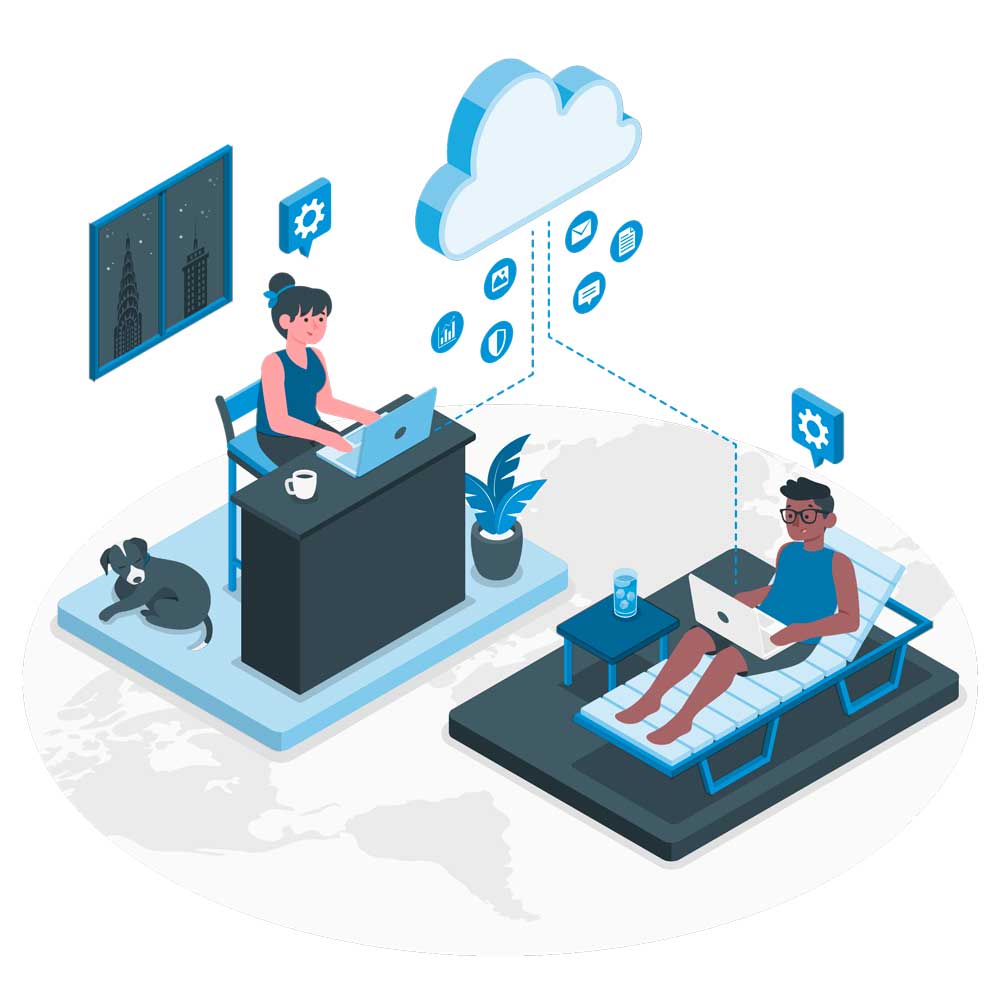Artificial Intelligence (AI) and Robotic Process Automation (RPA) are revolutionizing the world of both inbound and outbound call centers, promising to solve service issues and reduce labor costs.
The future will see an increasing integration of these technologies, leading to more efficient and customer-oriented operations. But will human operators soon become obsolete?
At least in the short term, we can say that call center operators will remain essential for managing more complex and sensitive interactions.
In summary, human agents will not become obsolete, but their roles will evolve in synergy with AI and RPA. Technological innovation will continue to improve operational efficiency while maintaining the fundamental human element of customer satisfaction.
The Role of AI and RPA in Modern Call Centers
What is Artificial Intelligence (AI)?
AI is the ability of a machine to imitate human behavior in making decisions and communicating. There are two main types of AI:
- Narrow (or Weak) AI: used today in virtual assistants like Siri and Alexa. These systems can perform specific tasks and answer questions based on accumulated information.
- General AI: still in development, this type aims to simulate human intelligence more comprehensively; an example is ChatGPT by OpenAI. This technology is still in its early stages but could soon revolutionize many sectors.
What is Robotic Process Automation (RPA)?
Robotic Process Automation (RPA) involves using software to automate repetitive tasks based on rules. It can be:
- Unattended RPA: automates large volumes of work behind the scenes, such as processing requests, payments, and applications.
- Attended RPA: assists agents during customer interactions by providing prompts and completing routine tasks like filling out forms.
The Benefits of AI and RPA in Call Center Operations
Enhancing Customer Experience
AI can offer personalized experiences, adapting to each customer’s specific needs. At the same time, RPA frees agents from repetitive tasks, allowing them to focus on higher-value activities that require creativity and human decision-making.
This improvement in agents’ work leads to greater staff satisfaction and a better customer experience.
Example of AI Application in Call Centers
When Artificial Intelligence in call centers is used, for example, to manage a chatbot, it can create personalized responses, generate detailed reports, and draft messages based on the context of a conversation.
Many call center software with cloud-based CRM already use AI in various customer service contexts to answer questions, provide support, and resolve complaints. Its ability to understand context and manage multiple topics simultaneously enhances the efficiency and effectiveness of automated customer service.
Challenges and Future Prospects for Call Centers
The adoption of AI and RPA in call centers presents significant challenges. Balancing technology and humanity is essential to maximize efficiency and customer satisfaction.
For this reason, human agents remain crucial for handling complex and sensitive interactions that require empathy and understanding.
Evolution of Human Agents’ Roles
Human agents will not become obsolete, but their roles will evolve. AI and RPA will allow agents to focus on more complex issues, freeing them from repetitive tasks and improving their job satisfaction.
This change will require training and adaptation, but it will lead to a more skilled and satisfied workforce.
Economic and Social Impact
The introduction of AI and RPA in call centers will also have economic and social impacts. While they can reduce operational costs and increase efficiency, it is important to consider the implications for employment.
Companies will need to balance automation with the need to maintain jobs and offer retraining opportunities for employees.

